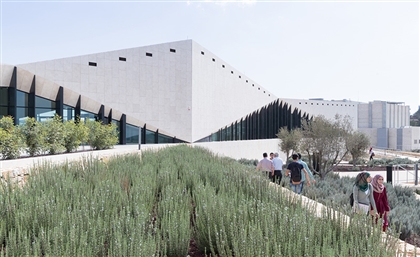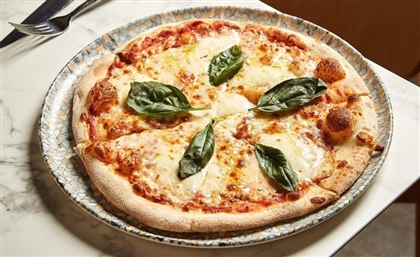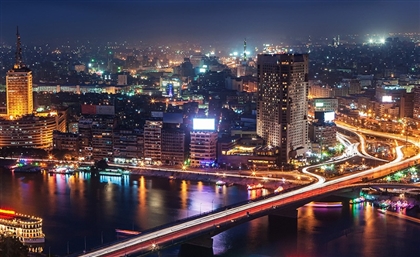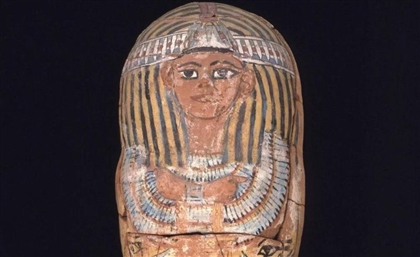The Resilient Roots of Palestinian Food
An exploration of a cultural history appropriated by an occupying force that cannot even pronounce what they claim is theirs.
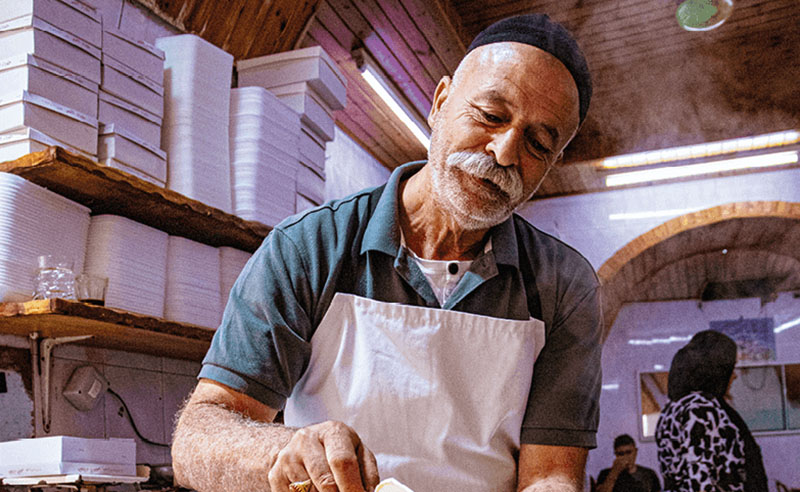
“In relation to Israeli food culture, the Arab-Palestinian food element was marginalized, blurred, and reinterpreted as belonging to the Zionist settlers. In other words, Israeli food culture needed the Arab-Palestinian culture as a source of imitation and localisation, but at the same time desired its de-Palestinisation.” (Mantal and Ranta, 2014)
When exploring the violent impact of the Israeli occupation on Palestinian culinary heritage, the deliberate erasure of the Palestinian identity and the appropriation of inherently Palestinian food into 'traditional Israeli food' becomes apparent. A significant aspect of this appropriation was the portrayal of Arab foods in Israeli cookbooks. Through the theft of Palestinian recipes handed down through generations, Palestinians' ties to their own food was quite literally bound and sold in Israeli cookbooks as the Zionists' own.
Therefore, the occupation forged a fabricated national cultural identity by portraying Arab cuisine as Israeli in origin, with the intention of misleading incoming waves of Jewish immigrants into believing these dishes are an integral part of their contrived identity, deliberately ignoring any acknowledgment of these dishes' Palestinian roots.
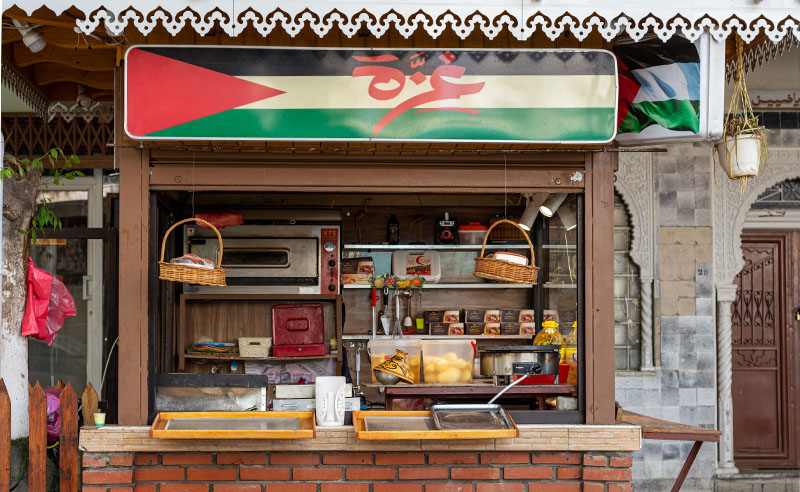 Over the past few weeks amidst the ongoing and unrelenting carpet bombing of the Gaza Strip, a video of a boy in a refugee camp surfaced online. In the 20-second clip, the boy, alongside who one can assume is his younger sister, can be seen making ‘Shakshouka’ - a traditional dish consisting of boiled eggs in a tomato-base sauce - on a cast-iron pot atop flaming rocks.
Over the past few weeks amidst the ongoing and unrelenting carpet bombing of the Gaza Strip, a video of a boy in a refugee camp surfaced online. In the 20-second clip, the boy, alongside who one can assume is his younger sister, can be seen making ‘Shakshouka’ - a traditional dish consisting of boiled eggs in a tomato-base sauce - on a cast-iron pot atop flaming rocks.
Although the occupation intentionally destroyed the boy's home, leaving him and his sister to fend for themselves in a refugee camp without basic human necessities, he managed to hold onto nothing but faith and determination. In that moment, as the boy strived to secure sustenance for himself and his sister in the face of an impending famine, he unknowingly engaged in an act of resistance. This act connected him to a broader network of Palestinians, a network that stretches across generations and continents. These are Palestinians who have preserved the same culinary traditions, traditions that existed long before modern machinery and, notably, before the occupation.
Despite contaminated water, bombed food stocks, and destroyed bakeries, Palestinians persist. They continue to rely on resourcefulness, with dishes like Shakshouka made in camps and Mahshi crafted from cucumbers, the only remaining accessible vegetable. These culinary adaptations are just a glimpse of the countless ways Palestinians support themselves amidst an ongoing genocide and the systematic erasure of their culture.
“The Palestinian table spans our entire geography from the mountains of the Galilee to the valleys of the south, from the coast of Yaffa all the way to the West Bank. It is scattered across the globe and built from memories of a time when most of us lived in the same land. In spite of our political circumstances and global dispersion, what ties all Palestinian tables together is more than just good food; it is the notion of “home”, the spirit of generosity, the importance of family, and the value of bringing people together,” writes Palestinian author and cook Reem Kassis in her book, ‘The Palestinian Table.’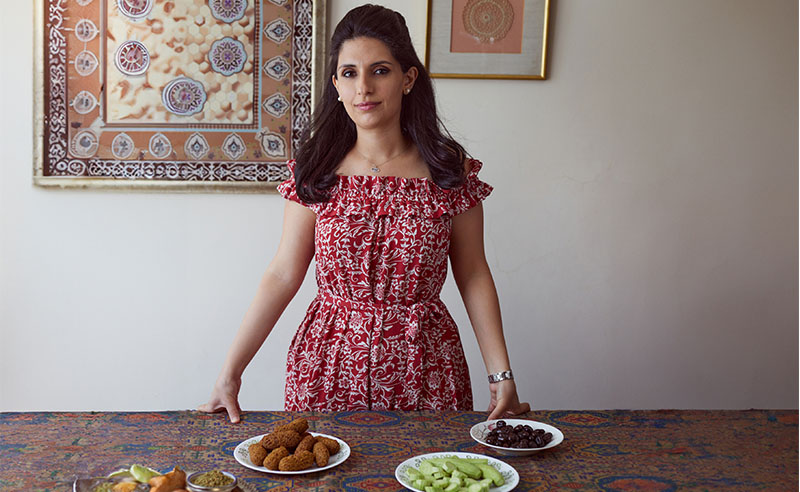 Seventy-five years after the Nakba of 1948, for many Palestinian descendants, the soil of their forebears' homeland remains untraveled, barred from a return in the face of Israeli settler colonialism. Although for some of these descendants, language, customs, music, and traditions may have dimmed with the passage of time and the expanse of geography, Palestinian cuisine persists as an unchanging emblem of endurance and ancestral heritage. Embedded within these culinary traditions is an intangible string connecting past with present, bearing witness to a nation's relentless spirit in the face of displacement.
Seventy-five years after the Nakba of 1948, for many Palestinian descendants, the soil of their forebears' homeland remains untraveled, barred from a return in the face of Israeli settler colonialism. Although for some of these descendants, language, customs, music, and traditions may have dimmed with the passage of time and the expanse of geography, Palestinian cuisine persists as an unchanging emblem of endurance and ancestral heritage. Embedded within these culinary traditions is an intangible string connecting past with present, bearing witness to a nation's relentless spirit in the face of displacement.
The roots of Palestinian cuisine can be traced back hundreds of years to ancient civilizations that once thrived in the region, including the Canaanites and the Philistines. Through trade with these cultures, vital ingredients central to Palestinian cooking today, such as wheat, barley, olives, and dates, were introduced. Palestine's strategic location along these multicultural trade routes also exposed it to culinary influences from neighboring regions throughout history. During the Ottoman Empire's rule of Palestine from the 16th to the early 20th centuries, new dishes were introduced to the local repertoire, including baklava and hummus, which have since become integral to Palestinian cuisine.
Modern Palestinian cuisine reflects the long history and multicultural influences on the land. Traditional recipes focus on locally grown, seasonal ingredients like olive oil, olives, herbs, legumes, vegetables, yogurt, and locally sourced meats and fish. Cooking styles and popular dishes vary somewhat between different regions of Palestine - the Galilee, West Bank, and Gaza Strip - each known for their own culinary specialties. Yet Palestinians share fundamental elements of cuisine and view food not just as sustenance but as an integral part of cultural customs and social gatherings that bring communities and families together.
Many staple meals have been handed down through generations, serving as a culinary narrative of Palestinian culture and their deep connection to the land. Several prominent examples highlight how agricultural and social traditions have sparked flavorful innovations over centuries. Maqlubah, arguably one of the most celebratory dishes, boasts diverse origin stories. One narrative suggests it was crafted by a Syrian cook showcasing their skills to guests, while another theory proposes that Arab cooks devised it as a way to repurpose leftover rice during the era of the Crusades.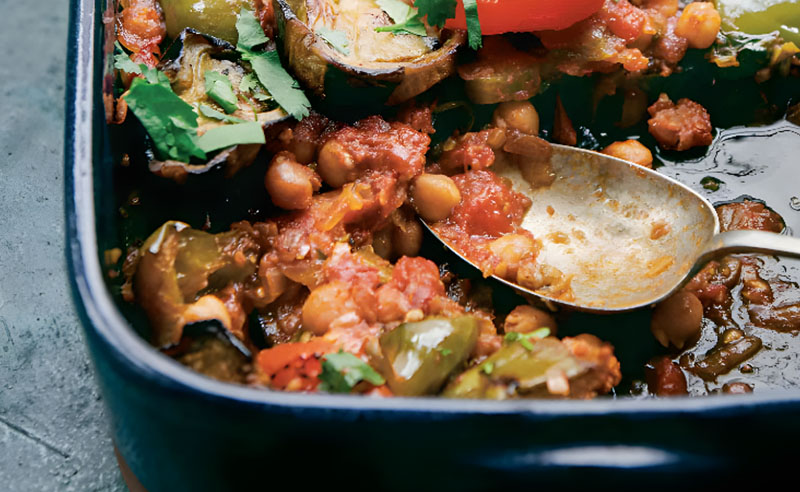 Likewise, Taboon bread takes its name from the traditional Taboon ovens that once baked this staple flatbread across Palestinian villages. In Hebron, where craftsmanship runs through the city's identity, Qidreh brings together local favorites - tender lamb and fragrant rice absorbing aromas from the neighborhood wood-fired oven. Without that distinct local oven imparting flavor, Qidreh loses something. Another cultural staple, Msakhan, traces its origin to an accidental blending of ingredients. Legend tells the dish began by happenstance, tracing to a traditional baladi stove - holes dug in the earth used for communal cooking. Bread and meat were baked together inside, and over generations, more ingredients mingled in tandem within the pits. Thus chicken serendipitously met bread, and msakhan was born from Palestinian agricultural practices over 150 years ago.
Likewise, Taboon bread takes its name from the traditional Taboon ovens that once baked this staple flatbread across Palestinian villages. In Hebron, where craftsmanship runs through the city's identity, Qidreh brings together local favorites - tender lamb and fragrant rice absorbing aromas from the neighborhood wood-fired oven. Without that distinct local oven imparting flavor, Qidreh loses something. Another cultural staple, Msakhan, traces its origin to an accidental blending of ingredients. Legend tells the dish began by happenstance, tracing to a traditional baladi stove - holes dug in the earth used for communal cooking. Bread and meat were baked together inside, and over generations, more ingredients mingled in tandem within the pits. Thus chicken serendipitously met bread, and msakhan was born from Palestinian agricultural practices over 150 years ago.
“Turkish kebabs or Moroccan couscous are dishes that no one can argue were appropriated from other nations, but when it comes to Israel’s efforts to present itself as an indigenous Middle Eastern community, that does not resonate, especially if you call hummus ‘khummus.’” Writes Palestinian Journalist Yousef Alhelou in ‘Is Israel Stealing Palestinian Food?’ for TRT World
While Maqlubah, Taboon bread, Gidreh, Maftool, and Msakhan demonstrate Palestine's rich culinary heritage through centuries-old traditions and origins stories, they only scratch the surface. Every single food and ingredient embedded in Palestinian cuisine has cultural significance that can be traced back through history, a history that is stolen and appropriated by an occupying force that cries rightful ownership, yet cannot even properly pronounce what they claim is theirs.
According to the 2023 ‘Food Systems Profile - Palestine’ issued by the Food and Agriculture Organization of The United Nations, “The continuous political conflict has negatively affected food systems in the Occupied Palestinian Territory, resulting in distortions in the availability, accessibility and affordability of foodstuffs, particularly in the Gaza Strip. Due to the Israeli occupation, there are many restrictions on transport and movement of goods. Access to critical inputs, such as water, is not under the control of the Palestinian authorities. Consequently, the agriculture sector operates under severe constraints and is characterized by low food production and underperforming value chains.”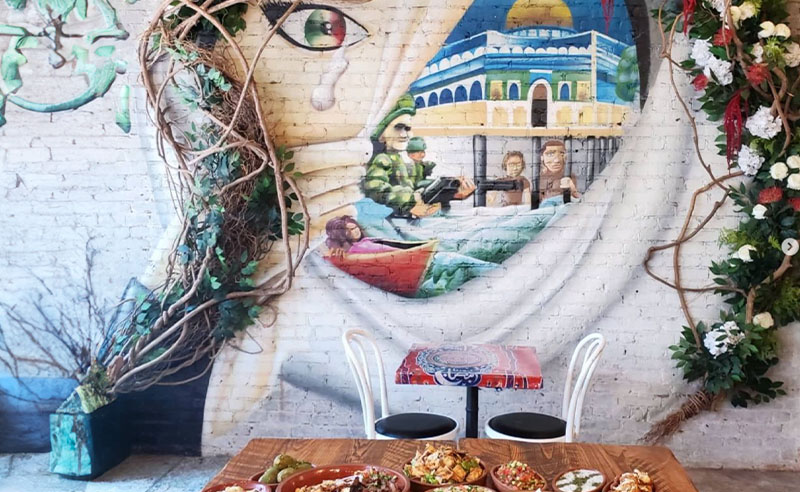 This results in a severe disconnect, as these precious resources are forcibly wrested from those who possess the most intimate knowledge of the land; the very individuals who understand the optimal conditions for olive trees and flourishing crops, knowing precisely when to sow and when to harvest. This strategy serves as a means to exert control over the populace themselves. This oppressive system extends its reach to other corners of the world where Palestinians have established their homes.
This results in a severe disconnect, as these precious resources are forcibly wrested from those who possess the most intimate knowledge of the land; the very individuals who understand the optimal conditions for olive trees and flourishing crops, knowing precisely when to sow and when to harvest. This strategy serves as a means to exert control over the populace themselves. This oppressive system extends its reach to other corners of the world where Palestinians have established their homes.
Now, with Palestinians within Palestine frequently severed from their own local produce and culinary heritage, Palestinians across the diaspora invest their hearts, souls, and spices into preserving their cuisine. Nevertheless, they confront an invasive phenomenon. In these locales, Israeli restaurants emerge along the streets, serving traditional Palestinian food with an Israeli rebrand. However, one of the few privileges afforded to members of the Palestinian diaspora is the capacity to drive change without confronting immediate and overwhelming danger, which stands in stark contrast to the precarious reality faced by Palestinians residing in their homeland.
“We use the food to spark a conversation, [to ask] who does this food come from? And who was hurt in order to claim it?” Palestinian-British Chef and Food Writer Joudie Kalla posed in an interview with Scene Arabia.
Through owning their own narrative and reclaiming the cultural culinary facets stolen from their ancestors, Palestinians both in the occupied territories and in the diaspora are consistently turning the table and laying claim to what is theirs. By championing Palestinian food in the west and calling it exactly what it is, Palestinian, Palestinians in the diaspora are educating the blissfully unaware westerner that the hummus in their fridge cannot be called Israeli, for it is most certainly not.
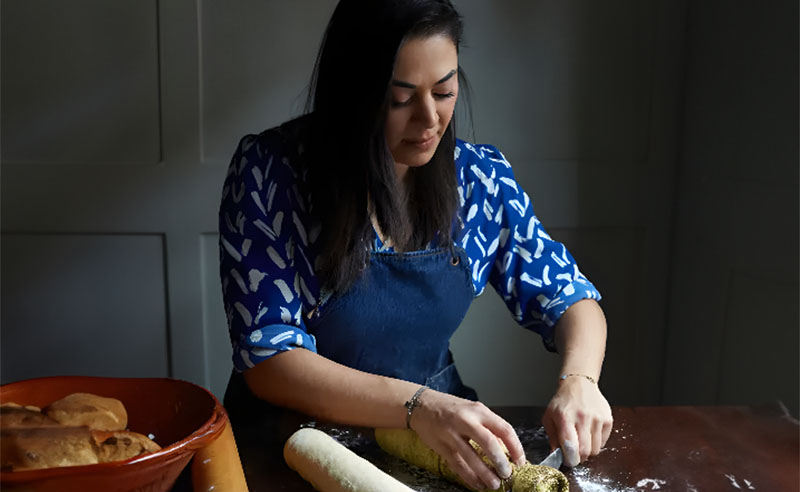 For instance, consider Ayat, a Middle Eastern restaurant in New York City serving Palestinian cuisine, which has recently fallen victim to a barrage of one-star reviews and targeted attacks in the wake of events ongoing since October 7th. However, Ayat has also experienced a surge of support from the Palestinian community in NYC, demonstrating solidarity in the face of Zionist hostilities. This highlights that across the globe, unity in the face of oppression remains unshaken. From London's ShakeShuka and Maramia to San Francisco's Taboun, Palestinian food continues to nurture a displaced nation.
For instance, consider Ayat, a Middle Eastern restaurant in New York City serving Palestinian cuisine, which has recently fallen victim to a barrage of one-star reviews and targeted attacks in the wake of events ongoing since October 7th. However, Ayat has also experienced a surge of support from the Palestinian community in NYC, demonstrating solidarity in the face of Zionist hostilities. This highlights that across the globe, unity in the face of oppression remains unshaken. From London's ShakeShuka and Maramia to San Francisco's Taboun, Palestinian food continues to nurture a displaced nation.
The food once lovingly prepared for their families in the homeland continues to be a cornerstone of Palestinian lives all throughout the globe. The Palestinian existence persists, and will always persist, whether it be through a Shakshouka cooked by an orphaned boy in a refugee camp in the Gaza strip, or a Maklouba centered on a family table in Brooklyn.
- Previous Article UAE's Sole DXB Announces 2023 Artist Line-Up December 8th-10th
- Next Article Lebanese Artist Nur Jaber Sings an Ethereal Plea in 'Hurriyya'
Trending This Week
-
May 01, 2024





